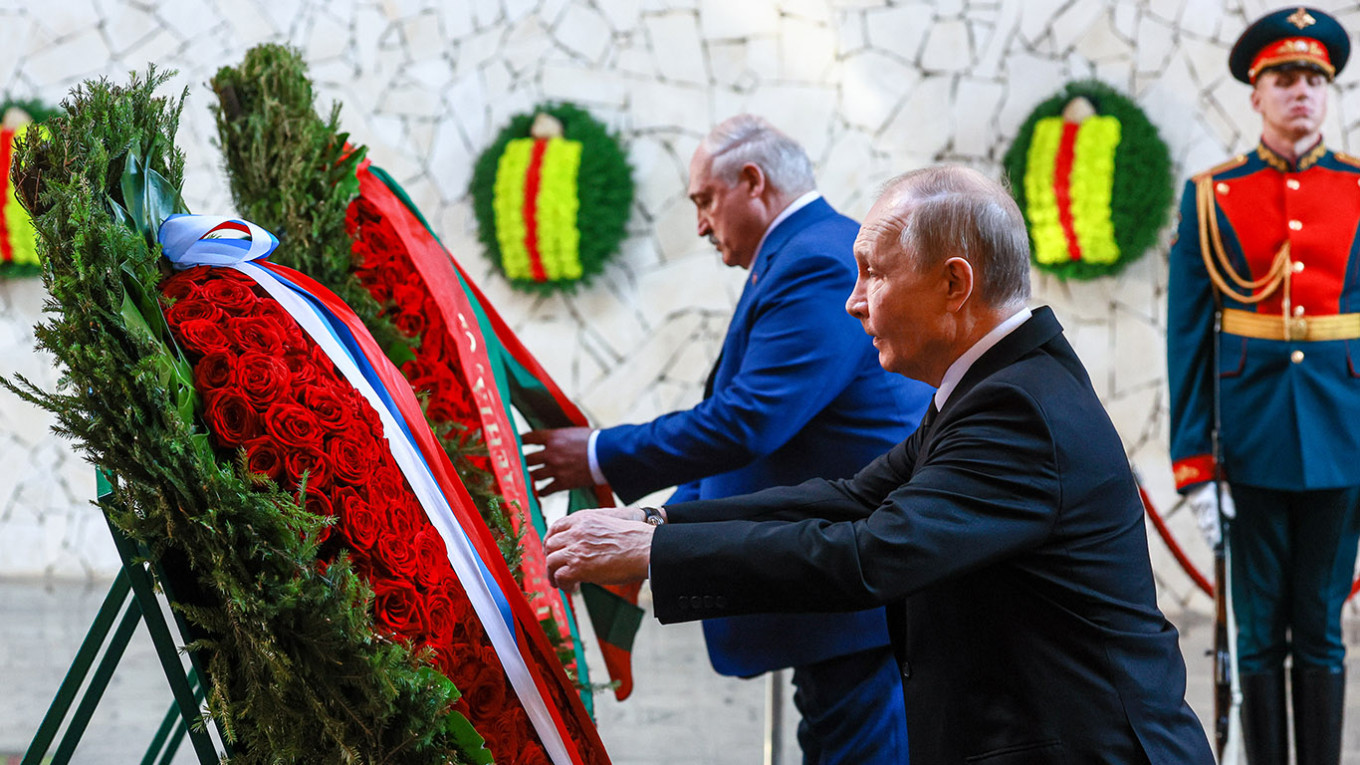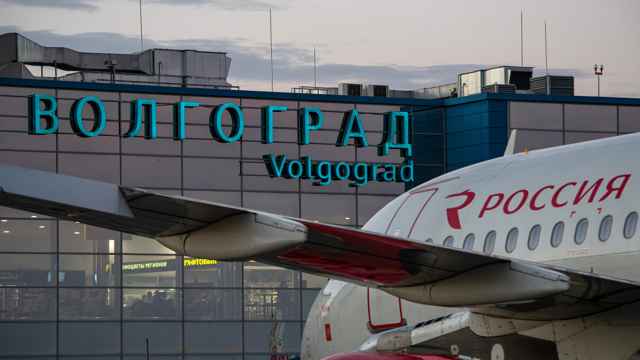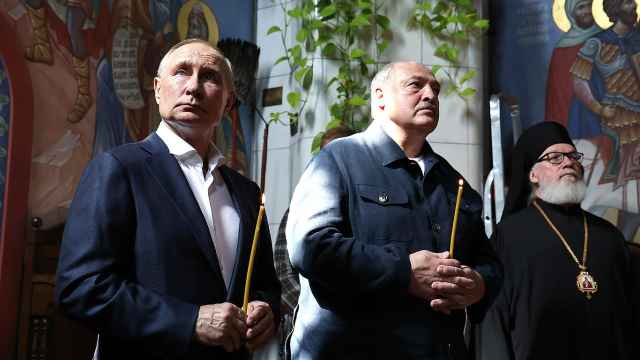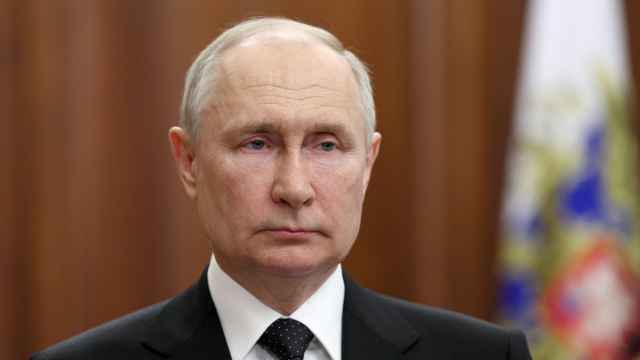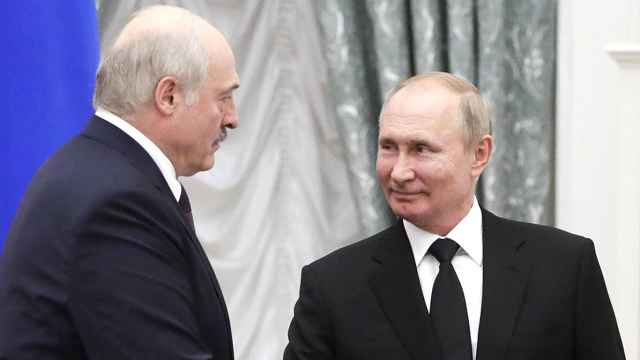Russian President Vladimir Putin and Belarusian leader Alexander Lukashenko arrived in the southern Russian city of Volgograd on Tuesday for World War II commemorations.
The two heads of state laid flowers at the Stalingrad memorial complex at the start of the visit, after which they addressed a Russian-Belarusian parliamentary forum, called “Great Heritage — Common Future,” dedicated to the legacy of the war.
“We share the exact same idea: one Fatherland stretching from Brest to Vladivostok. It so happened that two states emerged here, but we must do everything to ensure that our ties within this Fatherland are even closer than in a unitary state,” Lukashenko said at the forum.
Russia and Belarus signed a “Union State” deal in 1999 to ensure the cross-border flow of labor, capital and goods. In February 2022, Lukashenko allowed Russian troops to use his country as a staging ground for the full-scale invasion of Ukraine.
The two allies have since expanded to military cooperation, with a mutual defense pact signed in December 2024 that formalizes Belarus’ alliance with nuclear-armed Russia as a deterrent against foreign aggression.
After the parliamentary forum on Tuesday, Lukashenko and Putin held separate discussions about their countries’ strategic partnership. At that meeting, the two leaders agreed to build a joint aircraft manufacturing plant.
“We are ready to lay the foundation of a plant together with your specialists, a corresponding laboratory for drones,” Putin told his Belarusian counterpart during the meeting.
Volgograd, known as Stalingrad between 1925 and 1961, is the site of a major battle that shifted momentum in favor of Soviet troops when they defeated Nazi soldiers in the bloodiest fighting of the war in 1943.
In 2013, lawmakers in the city voted to revive the name Stalingrad for ceremonial purposes six days a year. This year, Russia’s civil aviation authority announced that the airport in Volgograd would be renamed Stalingrad International Airport during navigation calls between May 8 and May 10.
A Message from The Moscow Times:
Dear readers,
We are facing unprecedented challenges. Russia's Prosecutor General's Office has designated The Moscow Times as an "undesirable" organization, criminalizing our work and putting our staff at risk of prosecution. This follows our earlier unjust labeling as a "foreign agent."
These actions are direct attempts to silence independent journalism in Russia. The authorities claim our work "discredits the decisions of the Russian leadership." We see things differently: we strive to provide accurate, unbiased reporting on Russia.
We, the journalists of The Moscow Times, refuse to be silenced. But to continue our work, we need your help.
Your support, no matter how small, makes a world of difference. If you can, please support us monthly starting from just $2. It's quick to set up, and every contribution makes a significant impact.
By supporting The Moscow Times, you're defending open, independent journalism in the face of repression. Thank you for standing with us.
Remind me later.


